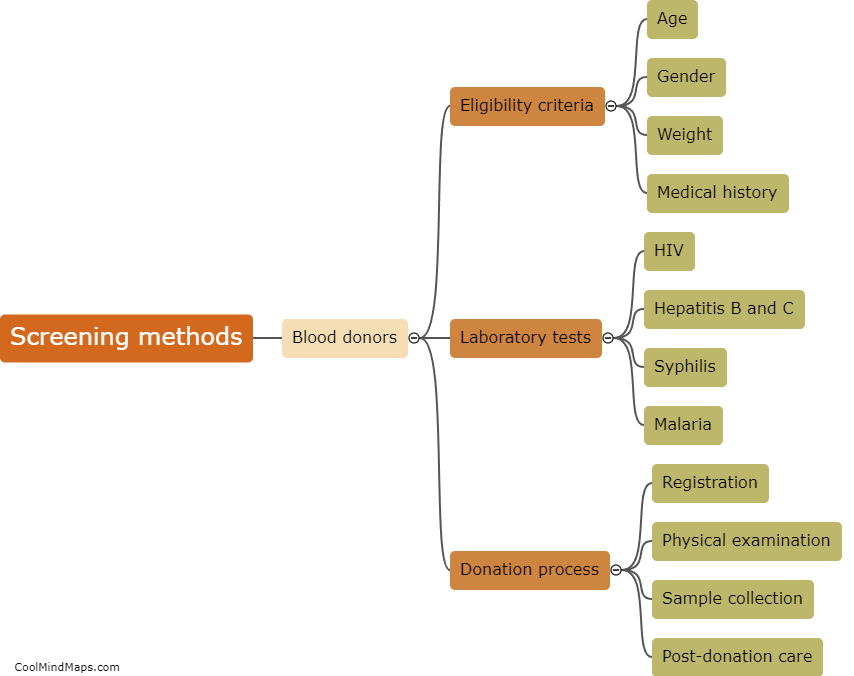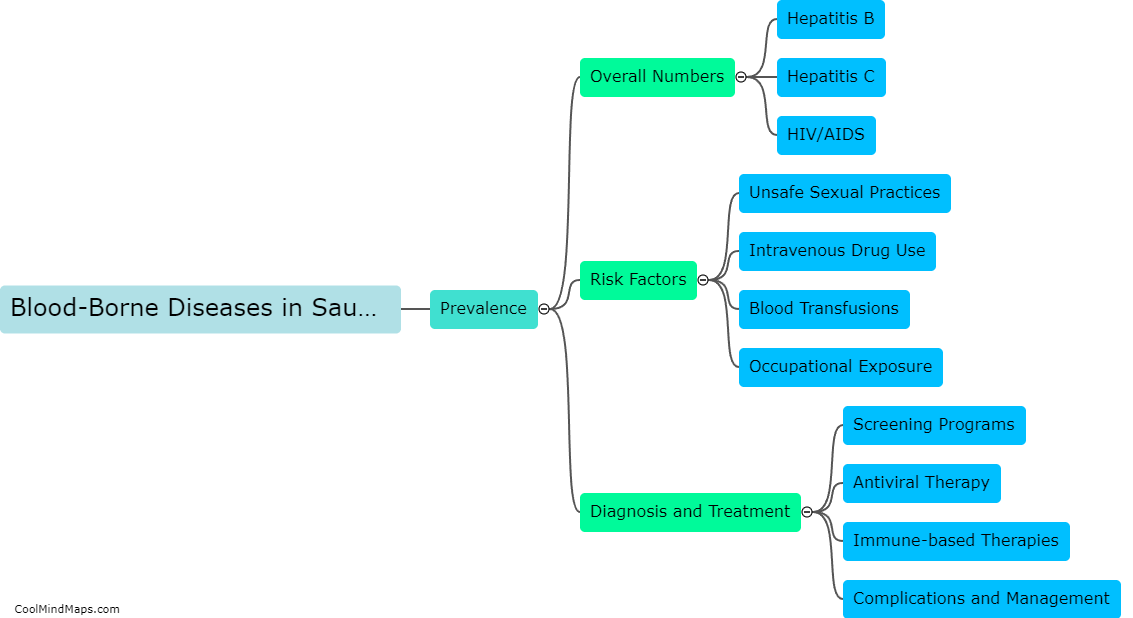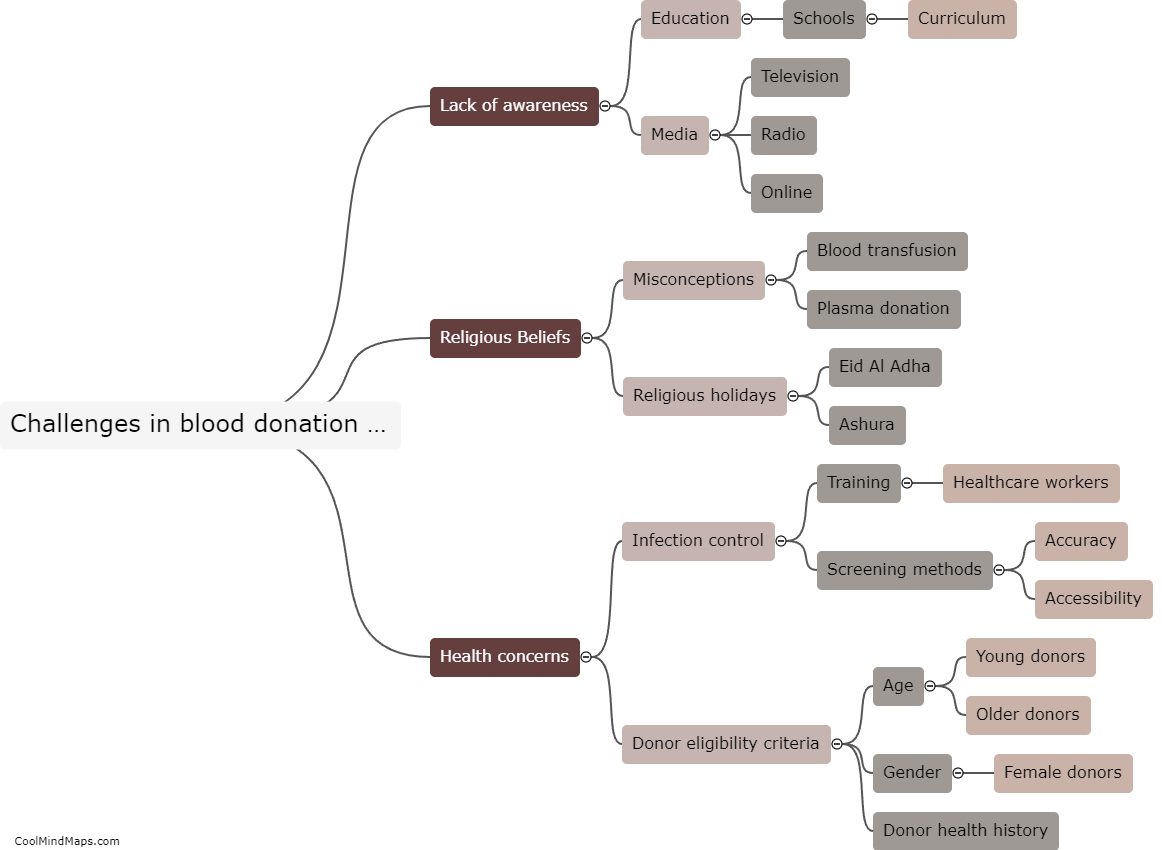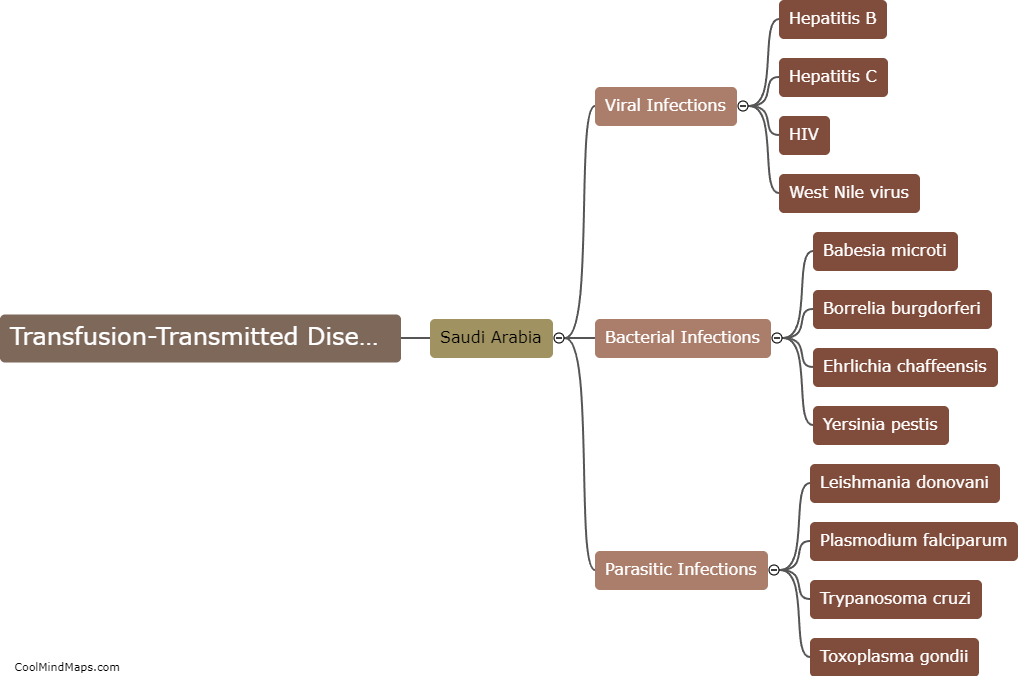What are the risk factors for transfusion-transmitted diseases in Saudi Arabia?
Saudi Arabia has a high prevalence of transfusion-transmitted diseases due to several risk factors. One of the leading factors is the high rate of HIV, hepatitis B and C infections among the general population. Other contributing factors include a shortage of voluntary blood donors, inadequate screening procedures, and inadequate testing of blood products. Additionally, cultural and religious factors may lead to a reluctance to disclose risks associated with certain practices, such as intravenous drug use or sexual activity. Overall, the risk factors for transfusion-transmitted diseases in Saudi Arabia require urgent attention and action to ensure the safety of blood transfusions and reduce the spread of infectious diseases.
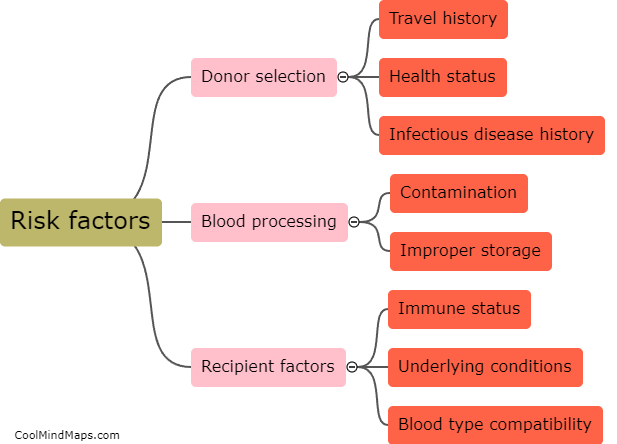
This mind map was published on 25 June 2023 and has been viewed 129 times.




